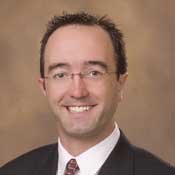In 1962, 58 Michigan toddlers won a lottery. To pick up their prize, these 3-year-olds were dropped off at a row of buildings in Ypsilanti, a small town near Ann Arbor, on a September morning. All the children were from disadvantaged backgrounds, and expectations for them had not been particularly high.
The lottery had some losers, too. Sixty-five toddlers—neighbors of the others—didn't go anywhere on that particular morning. They stayed with their parents, or grandparents or neighbors, just as the winners might have done if not for their good luck.
Those lottery winners spent two hours together that first day and began learning a few simple things: how to share their toys nicely, the responsibilities of taking care of a pet, finishing a task on time and keeping their emotions in check.
The days after that weren't much different—just three hours each morning, interacting with their peers and some adults. After two years, the lottery winners and losers were all back in the same schools, the same neighborhoods, the same churches and the same home environments.
Yet the payoff for the winners was astounding. By 2002, when they had turned 40, the winners made more than 30 percent more in income, were far less likely to receive government assistance and were more likely to own their own homes, cars and savings accounts. Girls were much more likely to graduate from high school (84 percent vs. 32 percent) and half as likely to be unwed mothers. Boys were much less likely to have been arrested (28 percent vs. 52 percent), be incarcerated at age 27 or be habitual drug users.
For many winners, this lottery was the break they needed to get out of a cycle of poverty. By the numbers, the estimated return to society is $16 for every $1 spent paying for these toddlers' unearned prize.
That lottery prize? A simple preschool program.
These are the results from a highly regarded study called the Perry Preschool Program that was started in the 1960s, in which 3-year-old children in a disadvantaged community were randomly chosen by lottery to attend less than three hours of structured preschool a day for two years. The researchers then followed the participants for the next 40 years, and they also followed the children who didn't attend the preschool classes.
Many Mississippians have concerns about publicly funded preschools. Isn't it just fancy baby-sitting? Is it a waste of taxpayer money? Actually, quality preschool looks like smart business.
The evidence from Perry and other studies proves that children learn "soft skills" that lead to a successful life—responsibility, temperance, and conflict resolution, among many others—in the early stages of life, at roughly the same time that children are learning language skills. And just as with language skills, these abilities are harder to absorb as time goes on.
Teach a 3-year-old Spanish? No problem at all—they are little sponges. Wait until he's 23? Hay muy dificil. Teaching someone to show up on time, play nicely, or hold his tongue at 23 is just as difficult.
Our state doesn't have the luxury of trying to fix it all on the back end. Most Mississippians have personal connections to individuals and families who are in the cycle of poverty with insufficient education, ill health and broken families, whether blacks in the Delta or our urban areas, or whites in rural counties like Perry and Tishomingo. By the time they've reached adulthood, the compounding effect has piled up against them.
We can break these cycles. The benefit of investing in "soft skills" early is clear. Little advantages grow into big advantages, while disadvantages might get a counterweight.
The Perry study used less than three hours per day of preschool for two years before returning the children to their "normal" (i.e. difficult) environments for the next 12 years of education. Imagine what might happen if we planted the seeds of success statewide as early as possible and then continued to nurture them. The investment in today's children will pay off for their children, so that as we continue to take early childhood education seriously in future decades, we will see our investments compound. That's good news for all our kids.
Thankfully, early childhood education is gathering consensus as a worthy focus for Mississippi. The Mississippi Economic Council, which serves as the Chamber of Commerce for the state, has included "the creation of a quality early childhood education and development system" as a major goal in its just-announced Blueprint Mississippi framework of priorities across the state. The Council's leadership training program, Leadership Mississippi, targeted early childhood education as a focus of its community efforts. The Barksdale Reading Institute, founded by former Netscape CEO Jim Barksdale, was created because one of the most successful businessmen in the history of our state concluded that we most effectively address Mississippi's biggest challenges by investing in our smallest citizens.
This is an issue we can all get behind. Increase marriage rates and reduce welfare rolls, and Republicans can show that statewide early childhood education has paid off. When wages rise and our prison population declines, Democrats can claim success. Right and Left, conservative and liberal, white and black—we all want to see our children succeed. Let's encourage our public officials of every stripe to make sure each child wins the lottery: quality preschool everywhere in Mississippi.
Henry Jones is a native of Richton, Miss., and is a partner in Iron View Capital, a quantitative hedge fund located in Ridgeland. He is thankful his two kids have won the lottery, but that's not good enough.



Comments
Use the comment form below to begin a discussion about this content.